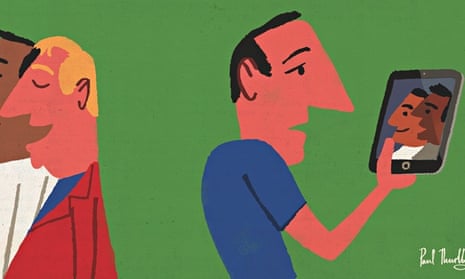Few ideas from social science have burrowed their way into the public imagination like Dunbar’s Number, the famous finding that we humans can’t cope with a social circle much larger than 150 people. It’s little surprise that it’s proven so captivating. As Maria Konnikova explained recently in a New Yorker profile of the anthropologist Robin Dunbar, the way it pops up unbidden in wildly different contexts is almost spooky. The average size of modern hunter-gatherer communities, it’s been calculated, is 148.8. The average size of army companies through history, from the Romans to the USSR, hovers around 150. And the average number of people to whom Britons send Christmas cards, according to a 2003 study, if you count every member of each household receiving a card? 153.5. No wonder so many panic-merchants worry that online social networks will destroy society. To accumulate 1,000 Facebook friends, Dunbar’s Number suggests, is to violate a law as old as humanity itself.
Judging by the research, the panic merchants are wrong: social networks don’t replace offline friendships, or turn users into basement-dwelling zombies, unable to converse face-to-face. Nonetheless, Dunbar’s work does suggest something troubling about modern friendship. For centuries – and especially since the Industrial Revolution – we’ve been uprooting ourselves from the communities in which we were born. But until recently, on arriving in a new place, you’d inevitably lose your ties with the one you’d left; you’d be forced to invest fully in a new social circle. These days, thanks to motorways and airliners, email and Skype, you need never cut those ties. You never leave your old life behind, so your emotional investments are scattered. Ironically (and as a British transplant to New York, I speak from experience), it’s precisely your continuing bonds with the people you’ve loved for longest that risk leaving you feeling alienated where you are.
One consequence is that the people in your circle of 150 are far less likely to know each other. Or, as Dunbar writes, “Our social networks are no longer as densely interconnected as they once were.” Anyone who’s ever fled small-town life might respond: thank God for that. After all, “dense interconnectedness” in villages is what explains that claustrophobic sense that everyone’s always snooping on your business. Yet it turns out that when close friends know each other, good things happen. For example, Dunbar’s research shows that people are more altruistic towards each other in dense social networks. Clarence and Lucretia might be firm friends – but all else being equal, they’re less likely to help each other out if they have no other firm friends in common.
Why are densely linked friends better friends? The motives involved aren’t necessarily all that virtuous. Maybe they just feel more social pressure, and worry that mutual friends will judge them if they’re not nice. Even so, the effect is that in a dense network, an act of friendship is two things at once: an expression of an individual bond, and another stitch in a bigger social fabric. At the very least, it’s an argument for getting over your hang-ups about introducing your friends to each other. True, they’ll probably gossip about you at some point, but then that strengthens the social fabric, too.
oliver.burkeman@theguardian.com
Follow Oliver on Twitter.

Comments (…)
Sign in or create your Guardian account to join the discussion